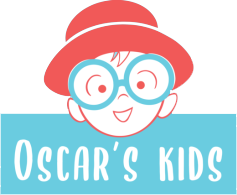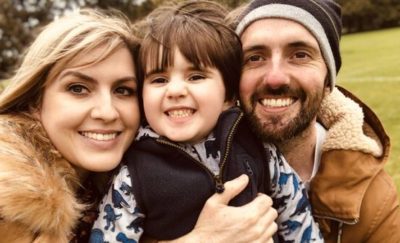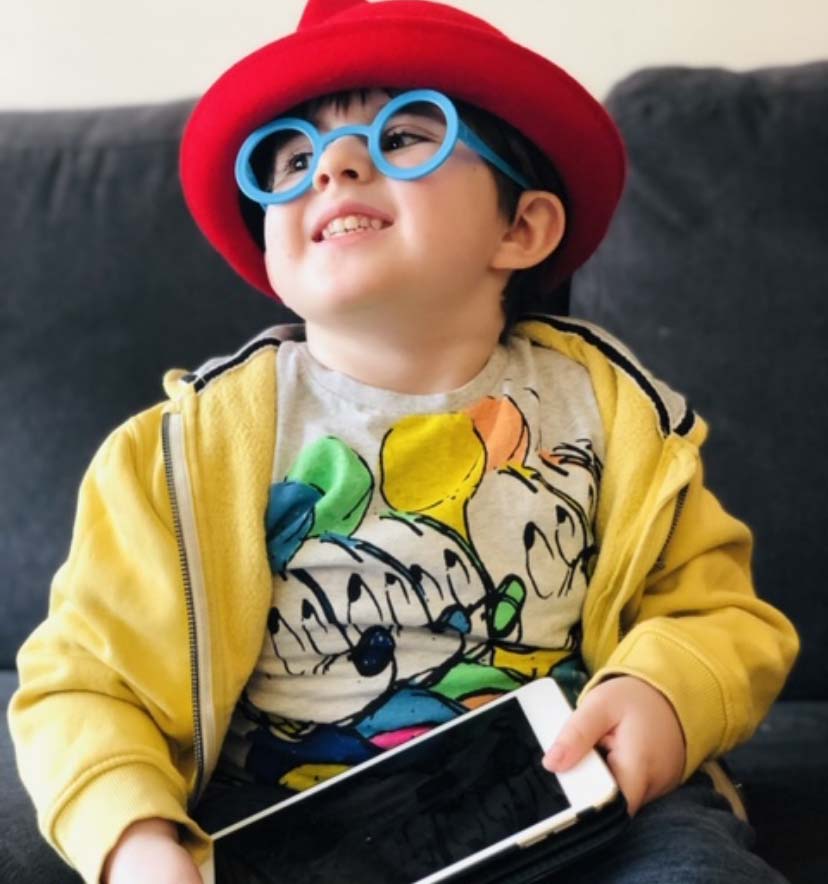All of our son’s toys are still in place and waiting patiently. Teddies with shining eyes and smudges of chocolate embedded in their fur. A village of figurines, monsters and animals from every movie and show imaginable. Wooden alphabet blocks and Lego pieces that were the tools of all creation on a given afternoon. Sheets of paper with happy unintelligible scrawls and sweet smelling nubs of crayons. Oscar’s clothes are folded neatly in his drawers as they were this time last year, anticipating their next day out. His plastic cutlery and bowls sit quietly stacked for dinner. At night as the shadows stretch out, his books beside our bed await his grand arrival to regale him with their stories for the hundredth time. And us, we wait. My husband and I have waited for what on the 29th July, today, is one year since Oscar died. Waiting for him to somehow return to us. He was a month past his 5th birthday when he passed away. The brain tumour he had been diagnosed with 19 months previously was such a shock, we still have not come to terms with it, let alone what followed. It was two pills to swallow, that at 3 1/2, our little boy and only child had cancer and secondly that no doctor could cure it. One day, but not now. Not then. A door shut quietly behind us forever in that moment. His cancer was called DIPG, a very rare type of brain stem tumour that mostly affects children. It would take Oscar’s life, as it had taken every child’s who had ever been diagnosed with it. In anything from a couple of months to a couple of years. And in the end we got time, time many children with DIPG do not get. But what is 19 months when you held onto a lifetime?
The deals you make in the darkness when someone you love is ill. We had no backbone of religion to prop us up so held onto what for us was tangible and most powerful, each other. A bond of love sewn long ago, unfaltering and deep rooted. But you find you still try to bargain with the universe and yourself. You scour the internet for the vaguest hope of cures which you diligently note down to bring to the oncology team at every appointment and which they in turn politely and carefully listen to and then kindly explain the pitfalls of. You will researchers to find answers in time and as each month passes you believe their shout of eureka must be close. You will the radiation to shrink his tumour and keep it at bay. You will his body to give him time. And eventually, as the days and months pass as smoothly and swiftly as a fast running river, you find yourself finally cornered in the final days wishing your child to have a peaceful death. All other hopes extinguished one by one. To just not know, be scared or in pain. To feel safe and to trust the promises we whisper to him as we hold his hand, that everything will be ok. That he will feel much better soon. That there are days of sunshine and ice cream ahead if we just weather this small storm. Oscar was 3 1/2 when he was diagnosed and his diagnosis was always our burden to bear, not his. He came to know that boys and girls sometimes have to go to see doctors and nurses to feel better. That some days you could feel bad but that they would always fix what needs to be fixed. And for those 19 months they did. He lived a beautiful life within the pillars of illness. In those final hours he knew that truth and that truth only and was content. The rest we swallowed whole.
We drive now to the cemetery every day to talk to him, something that has become a beautiful and important part of every day. We have stood with him there holding hands in blazing sunshine thick with bees and birdsong and in the dark of winter evenings bracing ourselves against the cold, promising him each time that a part of us stays always there with him while a part of him always comes home with us. That for now we must exist in two places at once. Often that small drive in the stillness of the car as we watch the world unfurl beyond the window, the simple magic of happy families strolling along the familiar pathways and parks, is unbearable to watch. We squeeze each others hand gently and steel ourselves. The quiet peace of the graveyard is a lulling song. It is not a place of fear or death and decay as we had once feared. It is a remarkable oasis of time completely stilled, with the rumour of all the ages of the world that its inhabitants have seen. Within its gates, the rush of the world is of little importance or consequence. The great roots of the earth are in the cemeteries of the world and to stand there is to feel their murmur. It has become a second home in the most comforting of senses.
There is this innate habit in the media of pushing the idea that bad things happen for a reason. Not everything is a teaching moment though, not everything is meant to be overcome and better us while being neatly turned into an Instagram quote that can give us a little pep for the day ahead. The sad truth is, many things happen in life by chance, both bad and good. The illusion is control. The pandemic is the obvious example of that which we can all relate to. The utter chance of life as the earth tips the chess board up and over for laughs and we all fall where we may. If we are lucky, we survive most of the huge events of life. Bloodied and battle scarred. The fodder of fire lit stories late at night. We grow and expand from them. But sometimes the bad is so utterly ruinous that there is no coming back from it. And no amount of preparation can steel you for it. We all know death and loss is intertwined with our lives. But its distant promise far on the horizon is very different to opening the door and allowing it in to your home when the time comes. But it is part of the terms and conditions of life. The small print that we choose to eye with a passing glance before giddily clicking yes. The chance to exist here at all with the gamut of potential for wonder is the greatest gift. But with that comes its antipode, the chance for the greatest sadness and loss. And as much as our brains gently ignore it, as much as we can watch something horrific on the news and truly feel shock and horror, we are also capable of finding ourselves laughing a half hour later at something witty on Twitter. We were you. And then we weren’t. And it is as simple and tragic as that. To say grief is a passing thing, to say Oscar’s death was something we could put behind us, simply isn’t possible. The measure of that little man and that great love demands a grief that matches its power. That is the price you pay. And one we could pay over and over. But that is a truly ruinous power. The kind that leaves you bereft and lost and utterly broken.
Grief in the early days is being plunged into the coldest, deepest waters from the highest heights. You cannot brace yourself against that magnitude of pain and shock. It doesn’t kill you, but it will feel like it should. Over and over. But as the days pass, you find grief is a complicated beast you must come to know. Some days it leaves us numb and spaced out, as if we have run a marathon overnight. We sail through days on a tide of exhaustion, limp and powerless as we cling to one another. Other days we bristle with anxiety and nervous energy and although it may be ugly to say plainly, we hate the world a little. Or some days a lot. And that’s a hard thing to say aloud. Grief can be ugly. There are days where seeing a happy family fills us with happiness for them, willing them to make the most of that moment, comforted to see happiness still thriving. And other days where we stand in the shadow of grief baring our teeth at the simple fortune of others. It can make you bitter. You have to work hard to temper that part, to not let it turn the soft parts of you to stone. But you also have to accept that some days you have to be feral and wild eyed. The first months after Oscar’s funeral we were staggered that the world continued to turn on its axis. We hid away, finding it a strange place we didn’t belong to anymore. And a year on we still don’t fit into the old space we once filled. And have realised we simply won’t again. I find I can weep now at the sight of a bee greedily nuzzling a flower, fledgling birds on the rooftops, a child giving a gummy smile to their parents. A clear night of stars in the still air is enough to break me. The majesty and misfortune of the world in the most minute. Most days the beauty of the world is a soft symphony that moves us to tears. We weep at its wonder and ache for the days we had in it. And it can be all those mixed emotions together, all seasons in a day or an hour. A poem I came across in the past year has stayed with me. It made me realise that to survive the tempest of grief, there was no point in fighting against it. You had to relent. Fully.
‘Ah, grief, I should not treat you
like a homeless dog
who comes to the back door
for a crust, for a meatless bone.
I should trust you.
I should coax you
into the house and give you
your own corner,
a worn mat to lie on,
your own water dish.
You think I don’t know you’ve been living
under my porch.
You long for your real place to be readied
before winter comes. You need
your name,
your collar and tag. You need
the right to warn off intruders,
to consider my house your own
and me your person
and yourself
my own dog.
“Talking to Grief” by Denise Levertov
And so we have allowed it to live alongside us. It is as much a part of daily life as breathing and eating. The weight of grief hasn’t changed in a year and we don’t expect it to. All we can hope is that we become strong enough to bear it better. That our bent backs may be straightened a little as we carry it with us every day.
What you learn of illness and death is that the worst thing that can happen is that the person you love who dies from an illness becomes defined by it. Don’t paint a picture of someone by the manner of their passing. Tell me who they were when their lungs were full of breath, their likes and loves and the funny moments of their small passage here. Oscar was never defined by cancer. He lived with it, but it was in the background, an inconvenience to the most joyous life. Oscar loved his life. Our life together. He met each day as if it was the sunniest Saturday, an adventure to be carefully pieced together, always starting with a hearty breakfast and some cartoons. He made the ordinary extraordinary. And the three of us danced in the light of our love together. A tiny, private world of happiness glittering in the darkness of the universe. And the moment of Oscar dying, and every moment after, changed nothing of that love. Nothing except how we must carry our lives together now. It ripped away all the layers wrapped around its core. There would be no more walks together to buy ice creams and stupendously expensive magazines full of plastic toys that gave him joy, no trips to the movies where we gorged on popcorn. No more late mornings in bed sandwiched together watching cartoons. Days building those Lego blocks and carefully spelling out the names of his favourite movies and cartoons like they were great sonnets. We wouldn’t go to Disneyland again. Or have a Christmas Day where Santa brought the perfect gifts. No monthly Christmas Days and impromptu birthdays once he was diagnosed. We wouldn’t know who he would have grown to be as the years passed, the incredible man he would have become. All the joy he would have brought us and everyone he met. The pain of it brings us to our knees as the layers are stripped and flayed upon us. But in the darkness the core remains. Our love. And in the void we are met with the simple truth, that the three of us have a love that is stronger than grief, or illness, or death. It remains pulsing in the dark. Unchanged and elemental. The life the three of us wound together is a closed loop, now perfectly preserved. The thing worth getting up for every morning then and now. So we carry on. Taking one day at a time. Holding on to one another as we always did but carrying Oscar within us now rather than alongside us. Bringing him on the journey that awaits us hidden in the darkness. Not the one we planned, but the hard one we will now forge together, step by step. Patiently shaping every day as we make time to rearrange his toys and dust his books and plan our day. As we laugh at the joy he brought us and find him springing to life when we talk of our memories together or look at videos and pictures, pockets of time ignited and relived. Waiting for him to return to us one day. Or for us to finally return to him when the time comes.


